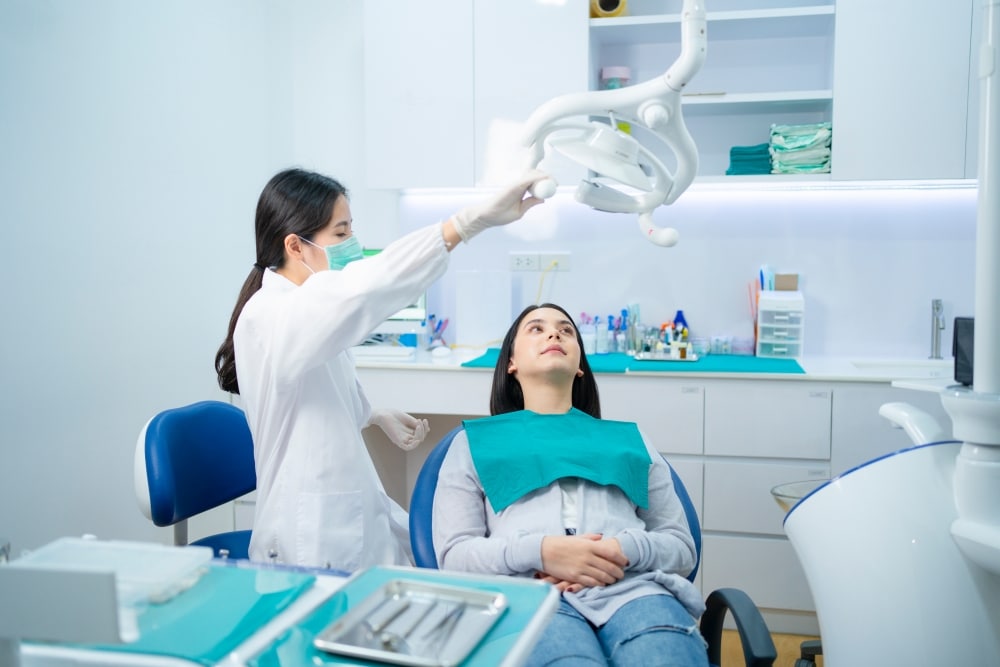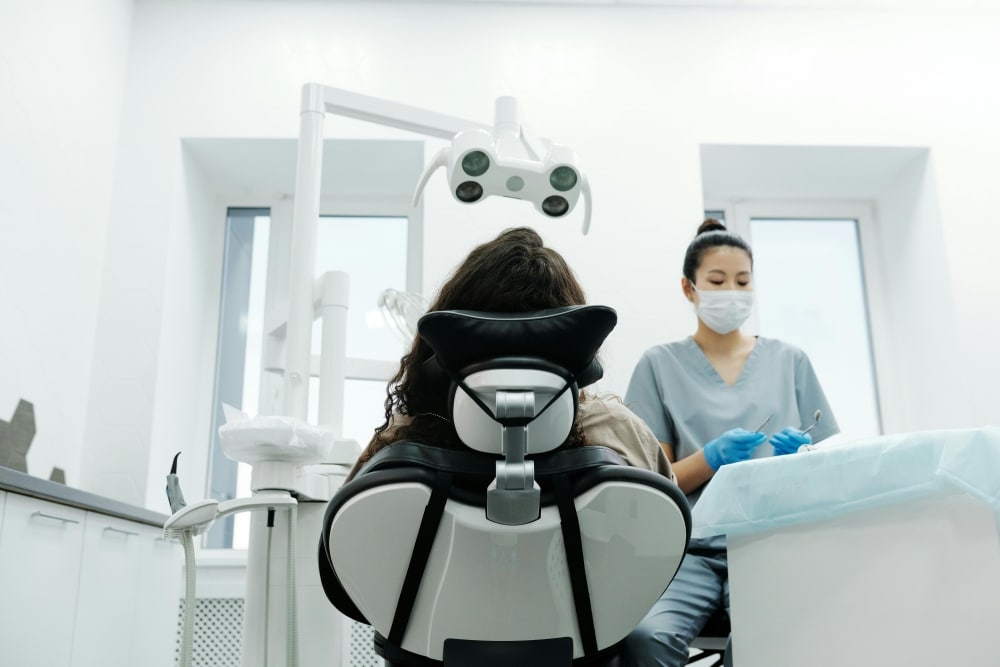
Botulinum toxin, or Botox, is typically used for aesthetic purposes. But it may also be helpful in dentistry, offering therapeutic use for specific dental conditions like temporomandibular joint (TMJ) disorders and bruxism.
So, how does botox work in dentistry? In this article, we will explore the dental applications of this neurotoxic protein, along with its role in helping to improve oral health management.
Botulinum toxin is derived from the bacterium Clostridium botulinum. It is primarily known for its ability to temporarily paralyse muscles, which has led to its widespread use in cosmetic procedures. However, the usage of Botox has since gone beyond mere aesthetic application.
In terms of the medical field, Botulinum toxin may serve as a tool for treating certain conditions. For instance, it can help treat medical conditions such as chronic migraines, excessive sweating, and certain muscular disorders.
When this protein is administered by dental professionals, it can target specific muscles in the oral and facial regions. This allows them to address specific conditions like temporomandibular joint (TMJ) disorders or bruxism that were previously challenging to manage.
When used in dentistry, Botulinum toxin can help block the nerve signals in specific muscles, leading to muscle relaxation. This mechanism may help address some of the following dental issues related to muscle tension and hyperactivity:
Temporomandibular Joint (TMJ) disorders can cause patients considerable pain and discomfort, making it challenging for them to perform simple tasks like chewing or speaking. In such cases, the dentist may recommend using Botulinum toxin to target the muscles around the jaw, potentially alleviating the tension and discomfort associated with TMJ disorders. It may also help reduce the pain and improve jaw function.
Bruxism, or teeth grinding, is another dental condition whereby Botulinum toxin may be helpful. Uncontrolled grinding may lead to tooth wear or fractures, causing pain and heightened sensitivity. With the dentist’s recommendation and administration, Botox may help relax the muscles involved, minimising the intensity of the force exerted during grinding.
For patients who are adjusting to their new dental implants or dentures, the dentist may recommend using Botulinum toxin to assist in the adjustment. By targeting the oral and facial muscles, Botox may aid in relaxing the muscles to accommodate the new dental appliance, enhancing comfort and fit.
A gummy smile, whereby excessive gum tissue is visible, can be a source of self-consciousness for many. In this context, the dentist may recommend Botulinum toxin as an approach for a minimally invasive solution. By targeting the muscles that control the upper lip, it may help reduce the elevation of the lip during smiling, thereby exposing less gum and enhancing the smile’s aesthetics.

When considering Botulinum toxin injections for dental applications, it is crucial to understand the procedure. It typically begins with a consultation, whereby the dentist will assess your specific needs, considering your dental and medical history.
During the procedure, the dentist will inject small amounts of Botulinum toxin into the targeted areas. These injections may cause minimal discomfort. Most patients report feeling just a slight pinch during the process.
After the treatment, you may return to your daily activities immediately. However, it is essential to follow any specific aftercare instructions provided by the dentist. This might include avoiding certain activities or foods for a short period.
The effects of Botox in dentistry are usually temporary, which may necessitate follow-up treatments to maintain the desired results. The dentist will advise on the frequency of these follow-up sessions based on your case.
Botulinum toxin should only be administered by licensed and qualified dentists. They have undergone specific training to understand the precise muscle anatomy of the face and mouth, ensuring potentially accurate injections while minimising the risk of adverse effects.
In terms of efficacy, studies have shown that Botox can help manage several dental conditions like TMJ disorders or teeth grinding. Patients may experience relief from pain and discomfort, and in the case of aesthetic applications like a gummy smile, the outcome may help improve one’s appearance.
However, it is also crucial for patients to have realistic expectations. The results of Botox in dentistry can vary based on individual factors, and it may not be suitable for everyone. A thorough consultation with a dental professional is recommended to determine if neurotoxic protein is an appropriate option.
The outcome of Botulinum toxin in dental treatments may be noticeable within a few days. Depending on the individual and the specific treatment area, effects may last for up to several months.
Post-treatment care is crucial in optimising the benefits of Botulinum toxin injections. You can expect the dental clinic to provide suitable guidelines on aftercare, ensuring an optimum recovery. Regular follow-up appointments are also essential for the dentist to monitor progress and make any necessary adjustments. At the same time, you can discuss any concerns or questions regarding the procedure.
Due to its ability to provide potential relief and improve oral functionality, Botox in dentistry can be helpful in various dental applications. It is crucial that you seek professional advice at an affordable dental clinic in Singapore for an informed and tailored approach to your dental care needs.
Contact
For more information, please contact our friendly customer service team
Menu
Services
Why Us